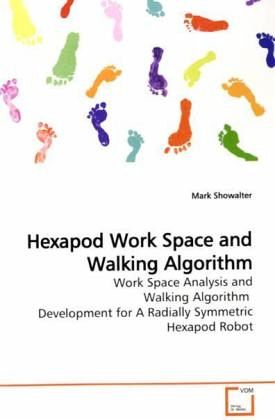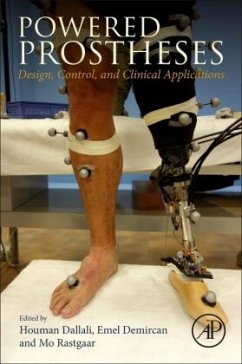
Hexapod Work Space and Walking Algorithm
Work Space Analysis and Walking Algorithm Development for A Radially Symmetric Hexapod Robot
Versandkostenfrei!
Versandfertig in 6-10 Tagen
45,99 €
inkl. MwSt.

PAYBACK Punkte
23 °P sammeln!
The Multi-Appendage Robotic System (MARS) built for this research is a hexapod robotic platform capable of walking and performing manipulation tasks. Designing walking gaits for such multi-limb robots requires a thorough understanding of the kinematics of the limbs, including their workspace. The speci c abilities of a walking algorithm dictate the usable workspace for the limbs. Generally speaking, the more general the walking algorithm is, the less constricted the workspace becomes. Developed workspaces range from simple 2D geometry to complex 3D volumes. While MARS is a hexapedal robot, the...
The Multi-Appendage Robotic System (MARS) built for this research is a hexapod robotic platform capable of walking and performing manipulation tasks. Designing walking gaits for such multi-limb robots requires a thorough understanding of the kinematics of the limbs, including their workspace. The speci c abilities of a walking algorithm dictate the usable workspace for the limbs. Generally speaking, the more general the walking algorithm is, the less constricted the workspace becomes. Developed workspaces range from simple 2D geometry to complex 3D volumes. While MARS is a hexapedal robot, the tasks of de ning the workspace and walking agorthm for all six limbs can be abstracted to a single limb using the constraint of a tripedal, statically stable gait. Based on understanding the behavior of an individual limb, a walking algorithm was developed to allow MARS to walk on level terrain. The algorithm is adaptive in that it continuously updates based on control inputs.












